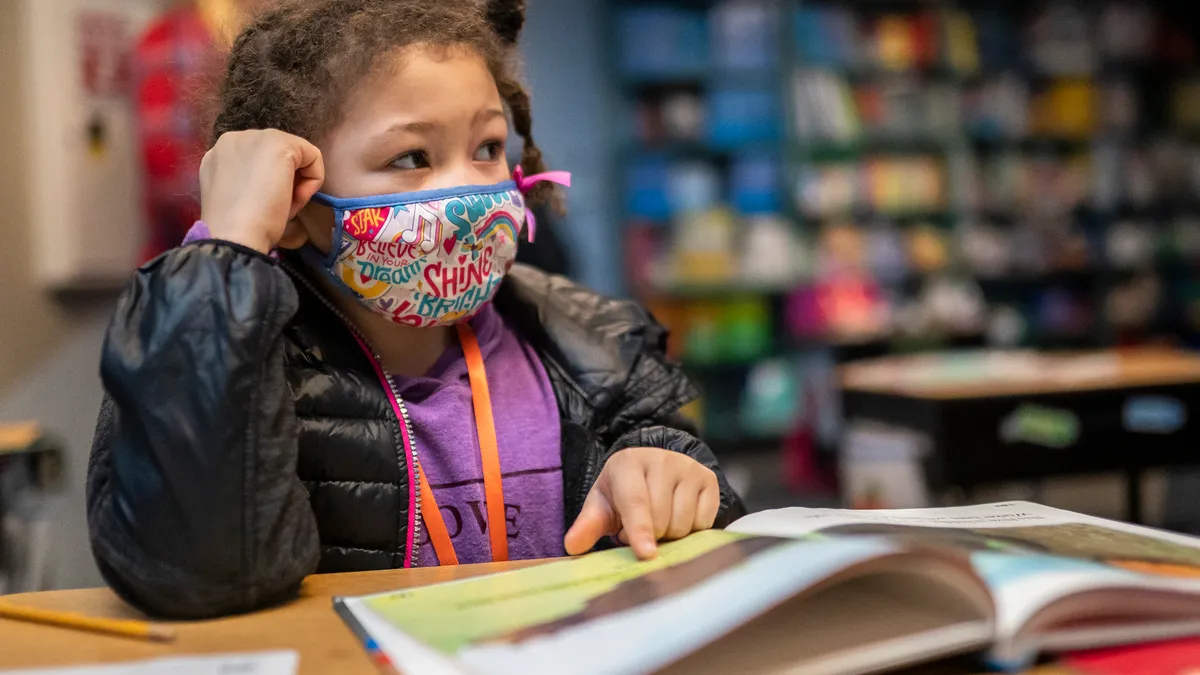Decried for decades by many as a form of media that will rot kids' brains, digital games have increasingly found support in education as a generation that grew up playing them and recognized their potential entered the workforce. Still, there are plenty of critics who see the rise of game-based learning approaches as an ed tech flavor of the week.
Looking to help people understand gaming in a different way and understand how it can work on a deeper level — while also highlighting some of the cool things happening in schools — USA Today education writer Greg Toppo penned "The Game Believes in You: How Digital Play Can Make Our Kids Smarter." Among the approaches he saw during his reporting: a University of Southern California game design team working on a video-game version of Henry David Thoreau's "Walden" and an effort to visualize how to stage an opera via Minecraft.
"One of the things I’m really excited about is the possibility that gamers will read this book and force their parents and their teachers to read it, too," Toppo told Education Dive. "Because I think as adults, we really don’t get not only the role of games in kids’ lives, but also the importance, so I think that’s really a big deal."
Education Dive recently caught up with Toppo to discuss the appeal of game-based learning, what results schools are seeing, and the issue of the "digital divide."
EDUCATION DIVE: What first caught your eye about educational gaming? Did you find that it’s more than just a trend or ed tech flavor of the week, as some critics have claimed?
GREG TOPPO: What first caught my eye wasn’t what was happening in education. It was what was happening just in general – the fact that gaming was becoming this sort of huge cultural force. It wasn’t until after that that I started meeting teachers who were using games in the classroom.
I guess the second piece of that, whether it’s the flavor of the week, I think anything’s got the potential to be just the flavor of the week, but games are different in a pretty fundamental way. First of all, it’s hard to define just what an educational game is because there are so many different kinds. There are some very simple applications and some really complex ones, so I think the variety lends itself to longevity that is not flavor of the week.
There’s this Larry Cuban line about how educational technology’s not really gonna take off until it’s as easy to use as a household appliance, and I think we’re seeing that in a way that we haven’t before. Just the fact that teachers use games in their real life, that they enjoy games in their real life, holds a lot of promise because you don’t have to switch gears in a very big way to be able to see the use of games.
This is kind of a stupid example, but how many of us have overhead projectors in our houses? [Laughs] It’s not something we use in real life, right? That’s kind of a dumb example, but you get the idea.
One of the interesting things that I’ve heard mentioned before, too, is that there’s maybe less of a fear of failure for people when they’re playing a game, so students have less fear of being wrong.
TOPPO: That, to me, is one of the most powerful — maybe the most powerful — things about games. It’s not so much that they offer failure where other things don’t — failure’s everywhere — it’s the way the game responds to failure. In just about everything else in your life, it’s an effort to kind of “reboot.” In a game, that’s one of the main qualities of it, right? You can reboot in an instant. You can just try it again. That’s, to me, one of the real pleasures of the game, to start again. Immediately. No cost. No inconvenience. No judgment. You just do it again.
When you were writing your book, how did you approach it? Did you visit certain schools in different states and look at their approach to gaming?
TOPPO: It ended up being a four-year process, so I really had time to kind of explore pretty widely. I guess you could call it almost a leisurely exploration. I really looked at a lot of schools. I spent time in a lot of classrooms. I spent time with quite a few game designers, a lot of whom aren’t even in the book. I was looking for something I hadn’t seen before.
During your reporting, how much of an impact on student achievement did you see?
TOPPO: That’s the real question. And that’s an emerging piece of this. If you ask schools that are using games pretty heavily, I think that’s one of the things that they are starting to see. For instance, DC public schools, I think they really like what they’re getting in terms of results. But other places are really waiting to see whether the results are that much better.
One of the things that I think is really promising is there’s much more of an eye toward whether there are results than in the past. The accountability system is really pushing educators to use tools that produce a return, and if they don’t produce a return, there’s a lot of pressure to get rid of them.
Did you see any approaches that you thought were particularly interesting, or any that you thought maybe wouldn’t work?
TOPPO: One of the things that hasn’t really worked very well is this idea of creating digital flash cards, where it’s basically the same kind of material you have on a piece of paper — whether it’s a worksheet or a flash card — and it’s just sort of electrifying that. That’s not necessarily going to get you better results, which is not to say that it never will, but it doesn’t really use the potential of games in any big way. To me, the most exciting stuff was the games that really taught you new content and helped you explore it and really do things you couldn’t do otherwise.
There are a couple of math games I talk about in one of the chapters that I think are really just remarkable, a couple of history games. And at the end of the book, I talk about a really fascinating kind of experiment into using Minecraft as a set-building platform. The very last chapter talks about a music program at Virginia Tech with teenagers who used Minecraft to help them stage an opera. That is really exciting.
It’s interesting, too, how games can be used to help students visualize certain scenarios. Like in a history class, seeing how things looked or the way people interacted during a certain time period.
TOPPO: I think that’s right, and to go one step further, not only being able to see what things were like and how people interacted, but to put you in the role of a person from that period. And that’s sort of what games do in general. They put you in the role of whoever it is you’re playing as, and that can be really, really powerful.
In a way, that’s sort of what school is supposed to do, right? You’re supposed to play a role, whether you’re a scientist in first period, an essayist in second period, a mathematician in third period, and an oboe player in fourth period, that’s what school is, right? It’s asking kids to play all these different roles. It just doesn’t always get the job done. I think games do a much better job of that. They charge students’ imaginations in a more vivid way.
What should school administrators interested in game-based learning approaches do to make sure equal access is provided for low-income students?
TOPPO: There’s always the fear that there’s going to be a digital divide. In my reporting, I found that it’s not necessarily the case that schools with a lot of low-income kids don’t have as much in the way of technology. I think that’s an assumption we shouldn’t make.
To me, the most important thing is just being smart about the technology you do have. One of the cool things about this field is it doesn’t take really, really high tech equipment in order to have a big impact. If you look at a history series like Mission US, which is a free set of games that’s essentially flash-based. You could have played that a decade ago on a desktop computer, so it’s not something you need cutting-edge equipment for.
Would you like to see more education news like this in your inbox on a daily basis? Subscribe to our Education Dive email newsletter! You may also want to read Education Dive's look at 5 tech budget issues every school and district must consider.
















